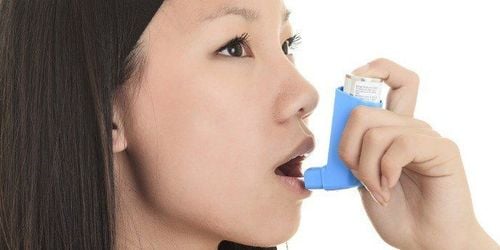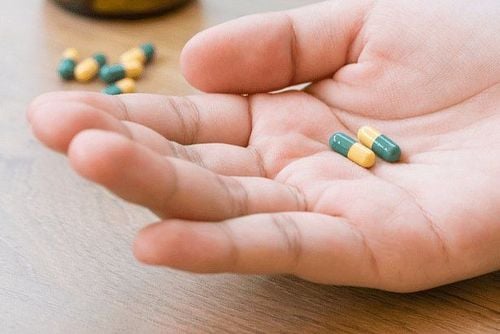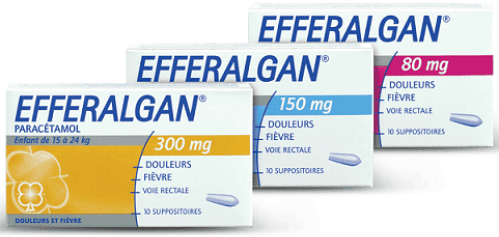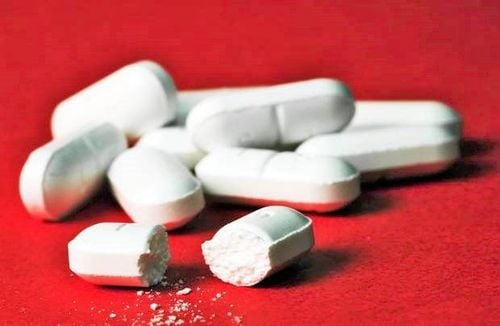This is an automatically translated article.
Many popular over-the-counter cold and children's cough medicines on the market. However, according to the recommendations of pediatricians, cough medicines for babies should not be given to children under two years of age. Meanwhile, there are also a number of cold and cough products that are prescribed that they should not be given to children under the age of four. So when should children cough medicine?
1. Can an infant or child take baby cold or cough medicine?
Most pharmaceutical organizations agree that over-the-counter cold or cough medicines should not be given to children under 2 years of age, including:
Cough suppressants (guaifenesin) Cough suppressants (dextromethorphan) Medicines decongestants (pseudoephedrine and phenylephrine) Certain antihistamines such as brompheniramine, chlorpheniramine maleate, and diphenhydramine. There are even some common cold and cough medicines that adults usually don't use for children under 15 years old, such as anti-inflammatory drugs such as ibuprofen or naproxen, antihistamines, and common pain relievers. nose to help reduce postnasal drip and cough.
2. What dangers can be encountered when arbitrarily using children's cough medicine?
Since a child's cough has a cause that can be related to many situations, it is helpful to consider the possible causes in various forms in the direction of correction and treatment. Accordingly, the most common cause of cough in children is the common cold (upper respiratory tract infection). Other causes of cough in children include nasal allergies, wheezing, acid reflux, and foreign bodies.
Thus, arbitrary use of children's cough medicine without knowing the cause may not help the condition to improve, but it can also be dangerous for the child. Especially when aspirin is given to infants and children because of its association with Reye's syndrome, a condition that can cause swelling of the brain and liver. On the other hand, acetaminophen can also be toxic to the liver if taken too much at once or for several days in a row. The correct dose for children is always clearly stated on the package and it is important not to exceed the recommended amount. When in doubt, ask your doctor or pharmacist. Furthermore, it is important to remember that the amount of medication needed is based on the child's weight and not on the age basis. In addition, when using cough medicine for babies that contain antihistamine ingredients such as chlorpheniramine, brompheniramine and diphenhydramine, can cause drowsiness but sometimes can also make children more easily agitated and hallucinated.

Cha mẹ không nên tự ý cho trẻ sử dụng thuốc ho
3. How to Use Children's Cough Medicine Safely
When you see a child with a cough or cold, never ask the doctor to give the child antibiotics. Those drugs treat bacterial infections, not viral infections like colds. So, taking antibiotics won't help but puts the child at risk for side effects, including diarrhea and nausea. In addition, the overuse of antibiotics contributes to the development of "superbugs", increasing antibiotic resistance.
Also, with all other cold and fever medicines, take the following precautions when giving them to your child:
For a child's fever, start with acetaminophen and infant aspirin should be avoided entirely. and use it with caution in other children, as it can cause a rare but serious disorder called Reye's syndrome. Use the spray only when needed. For children 6 years of age and older, a nasal spray that includes oxymetazoline can sometimes be helpful. But this medicine should only be used for a short time — up to three days. Prolonged use can actually make airway obstruction in young children worse. Check the age limit. Look carefully at the packaging to make sure the child is old enough to take the medicine. Check all the ingredients, making sure that the medicines for the child do not overlap. If you are giving your child acetaminophen for fever and cough and cold medicine, it may also contain acetaminophen. At this point, parents may accidentally give their children a double dose. For children's cough drops that come in liquid form, always use the dosing device that came with the product. Keep all medications up high and out of sight and reach of children.
4. Home remedies for coughs for children without medicine
Encourage your child to drink plenty of water : That keeps the airways moist, helps thin out mucus so it doesn't get stuck in the throat or chest causing irritation. Warm drinks and soups — including chicken soup — can also help relieve pain, ease congestion, and soothe an irritated throat.
Give honey to children: The value of honey for cough relief has been shown to be superior to cough medicine dextromethorphan and diphenhydramine. For children 1 year of age and older, half a teaspoon of honey every morning can help prevent your child from coughing throughout the day. However, never give honey to a child under the age of 1 year, though rare, this ingredient can lead to infant botulism, which can cause paralysis.
Use throat lozenges: For children 5 years and older, holding cough lozenges in the throat can relieve coughs and relieve sore throats. This method is not suitable for very young children as they can swallow and choke.
Use a cool mist humidifier: This device can soothe breathing and help children feel more comfortable, especially when in an air-conditioned room continuously. The humidifier should be cleaned daily when used according to the manufacturer's instructions.
Gargle with physiological saline: To relieve nasal congestion and cause cough in infants, place two to three drops of saline solution into the nostrils and use a bulb syringe to suck up the ooze. For older children, parents can use physiological saline nasal spray and teach children to gargle daily
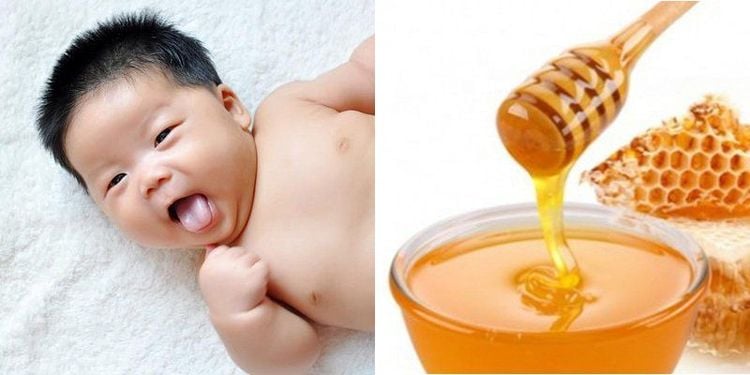
Bạn có thể dùng mật ong như một vị thuốc ho cho bé
5. When does a child with a cough need to see a doctor?
Most children's coughs go away on their own with the above home remedies without the need for medical treatment. However, there are cases where parents must be more vigilant and take their children to the doctor immediately if they have one of the following signs:
Persistent cough: Children with a cough lasting more than 3 weeks should see a pediatrician. department. Shortness of breath: If your child is breathing fast or uses his stomach to breathe, call the doctor right away. Unusual cough: This distinctive sound can be especially dangerous for young children. Wheezing: Wheezing is especially common in young children and often causes obstruction. Severe distress: Child does not interact with parents or is lethargic and has no appetite. In short, when children have coughs and colds, they are often upset and prevention is the best medicine. Encourage children to get plenty of rest, eat plenty of fruits and vegetables to boost their immune system, and practice good hand hygiene. When it is necessary to use medicine, be sure to follow the instructions for administering cough medicine to children. At the same time, parents also need to contact the doctor if the child's symptoms persist for more than a week, or the fever persists for more than two days, or there are other suspicious symptoms so that the child can receive proper treatment in time.
Vinmec International General Hospital is the address for examination, treatment and prevention of diseases, including Pediatrics. When performing the examination process at Vinmec, customers will be welcomed and used modern facilities and equipment along with perfect medical services under the guidance and advice of experts. Good doctors, well-trained both at home and abroad. Therefore, when a child has signs of a prolonged cough and fever that do not improve, parents can take the child to Vinmec for examination and treatment to help improve health and recover quickly.
Please dial HOTLINE for more information or register for an appointment HERE. Download MyVinmec app to make appointments faster and to manage your bookings easily.
References: fda.gov, webmd.com, cedars-sinai.org



